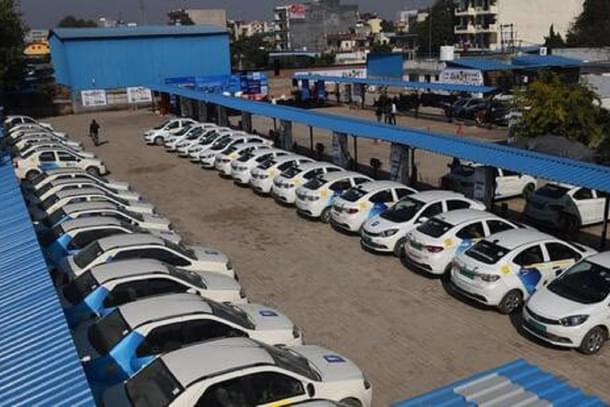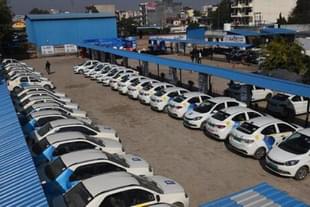News Brief
Here Are The Key Highlights Of Centre's New Electric Vehicle policy To Promote India As EV Manufacturing Hub
Kuldeep Negi
Mar 15, 2024, 03:42 PM | Updated 03:42 PM IST
Save & read from anywhere!
Bookmark stories for easy access on any device or the Swarajya app.


In a significant move to position India as a global hub for electric vehicle (EV) manufacturing, the Central government has rolled out a comprehensive scheme aimed at attracting investments in the e-vehicle sector from renowned global EV manufacturers.
The newly approved policy is designed to offer Indian consumers access to the latest in EV technology, while simultaneously fostering a competitive environment among EV manufacturers, according to a Ministry of Heavy Industries release.
This competition is expected to lead to increased production volumes, economies of scale, and a reduction in production costs.
One of the key objectives of the scheme is to diminish India's reliance on crude oil imports, thereby aiding in the reduction of the trade deficit, curbing air pollution in urban areas, and ultimately contributing to a healthier environment.
Key highlights of the policy include:
A minimum investment threshold of Rs 4,150 Crore (around USD 500 Million), with no upper limit on the potential investment.
A timeline of three years has been set for the establishment of manufacturing facilities in India, with the goal of commencing commercial production of e-vehicles. Additionally, companies are expected to achieve 50 per cent domestic value addition (DVA) within a maximum of five years.
The policy mandates a gradual increase in domestic value addition during manufacturing, requiring a localisation level of 25 per cent by the third year and 50 per cent by the fifth year.
A customs duty of 15 per cent, applicable to Completely Knocked Down (CKD) units, will be enforced for a period of five years.
The scheme allows for the import of EVs with a CIF value of $35,000 or above, with the total number of EVs permitted for import being contingent upon the total duty foregone or investment made, subject to a cap of Rs 6,484 crore (equivalent to the incentive under the Production Linked Incentive scheme).
The policy restricts the import of more than 8,000 EVs per year, though it permits the carryover of unutilised annual import limits.
Companies participating in the scheme are required to back their investment commitments with a bank guarantee, which may be invoked in instances of non-fulfillment of the DVA and minimum investment criteria outlined in the scheme guidelines.
Also Read: Election Commission To Announce Schedule For 2024 Lok Sabha Polls Tomorrow
Kuldeep is Senior Editor (Newsroom) at Swarajya. He tweets at @kaydnegi.





